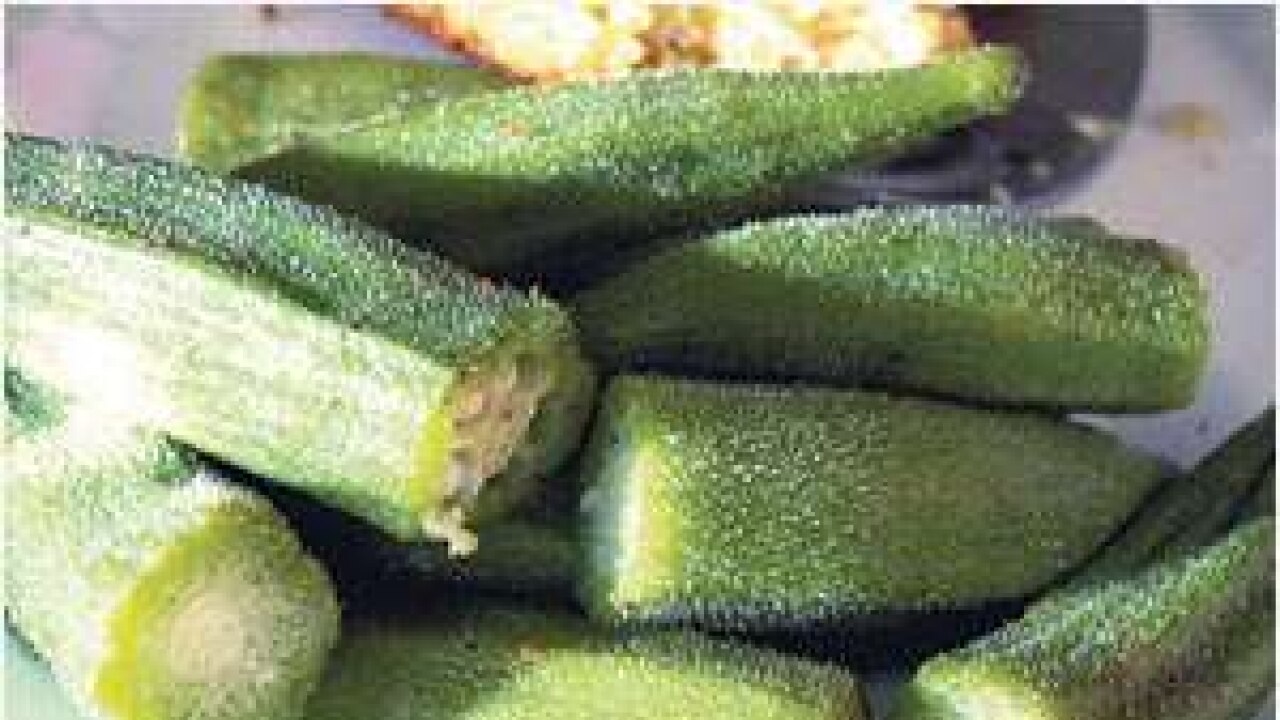
Benefits
- A good source of folate and fibre.
- Contains Vitamins C and B6, thiamin, magnesium and potassium.
- Low in fats and calories.
- A thickener of soups and stews.
Drawbacks
- Its glutinous consistency is displeasing to some people.
What it’s about
A relative of the hibiscus, okra was brought to the Americans from Africa in 1600s. The dark green pods are the main ingredients in spicy stews or gumbos. In fact, okra is nicknamed gumbo in many parts of the world.
This low-calorie starchy vegetable is high in folate. It is also a source of the antioxidant Vitamins A, C and of potassium, an electrolyte that maintains proper fluid balance, helps to transmit nerve impulses, and is needed for proper muscle function and metabolism.
Okra’s unique flavour and thickening properties make it a wonderful addition to stews and soups. As it cooks, it releases sticky juices that thicken any liquid to which it is added. This is due in part to the high content of pectin and other soluble fibres. Pectin helps lower blood cholesterol levels by interfering with bile absorption in the intestines and forcing the liver to use circulating cholesterol to make more bile.
The large amount of soluble fibres also helps prevent constipation by absorbing water and adding bulk to the stool.
Those who are put off by its gummy consistency should try steaming or blanching the pods until they are just tender. Don’t slice the okra before cooking— less juice will be released if the inner capsule remains intact. Prepare okra along with an acidic vegetable, such as tomatoes to reduce its gelatinous consistency. Some people prefer eating okra raw with dips, as part of a fresh vegetable tray or in a salad.